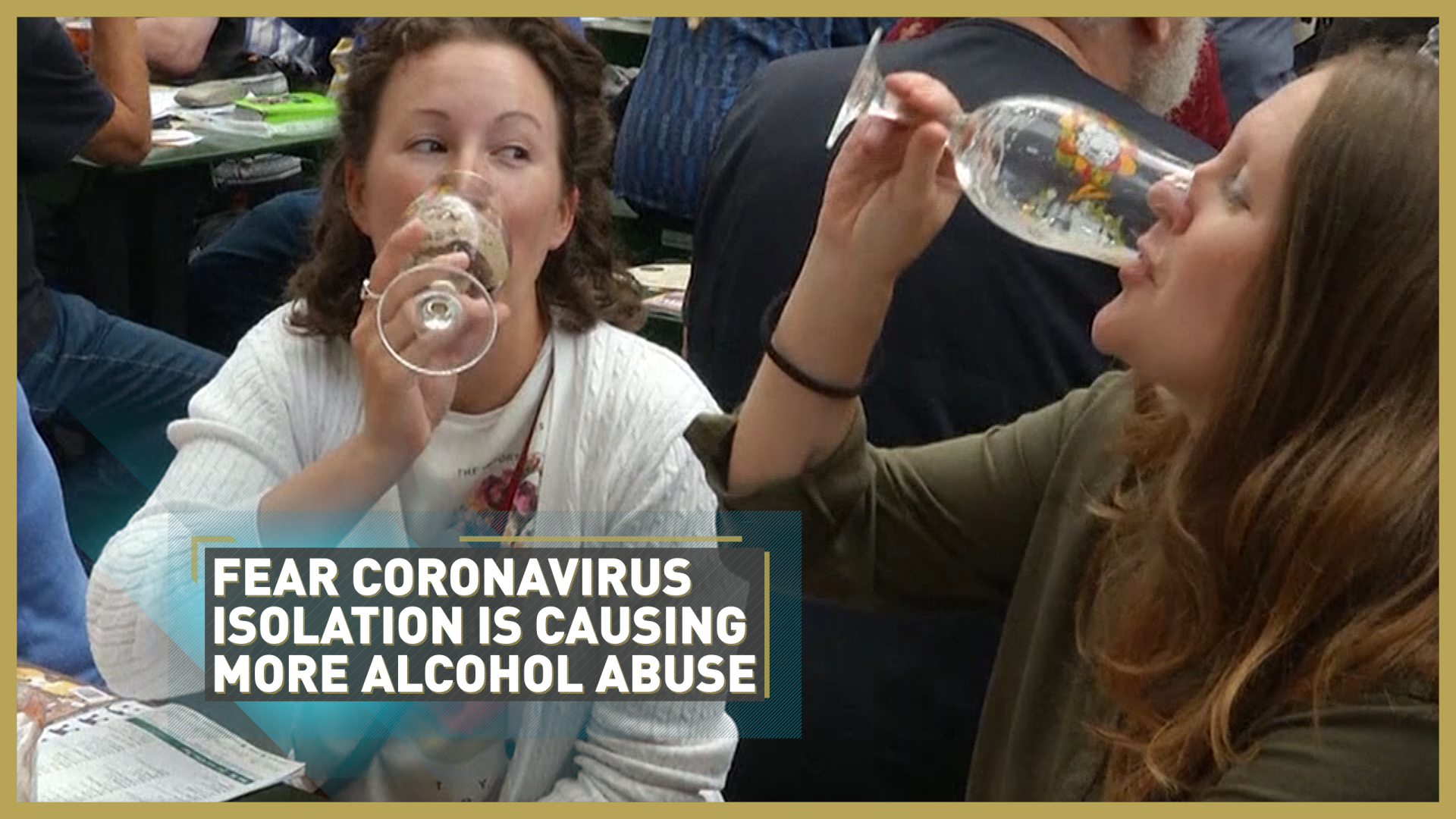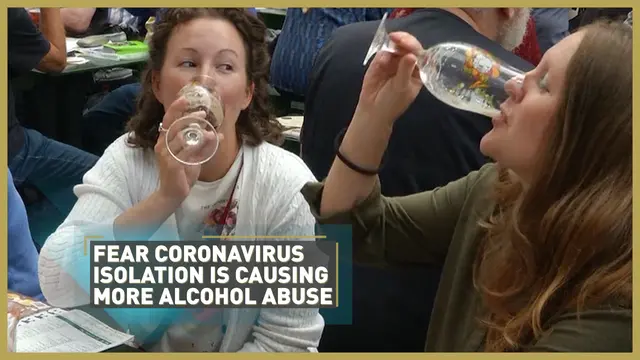02:56

Life under COVID-19 lockdown has been more tough for some than others – and more alcohol drunk could be a negative consequence.
The World Health Organization (WHO) is worried social isolation may lead to a rise in alcohol abuse and alcohol-related disorders including mental health issues.
It's urging European governments, in particular, to restrict sales of alcohol as the social-distancing measures continue.
Why Europe?
According to the WHO, the issue of problem drinking is worse in Europe than anywhere else. Its figures show this is where almost a third of the three million global deaths a year caused by alcohol happen. People in Europe drink more on average than the rest of the world and more of the population chooses to drink.
One concern amid lockdown is that services to help people with alcohol-related problems may be restricted. In the UK, Alcoholics Anonymous (AA) usually holds about 5,000 face-to-face meetings a week. The lockdown has made those largely impossible, with the AA saying there has been a huge rise in demand for other services instead.
"The numbers that have enquired about our meetings has gone up over 300 percent in the course of this outbreak," said Tom Fox, a non-alcoholic trustee at AA.
"There's obviously been a far greater demand on our electronic services, whether that's in terms of web traffic or calls to our helpline or other technological means of accessing support."
The lockdown has also been having a serious impact on businesses that rely on selling alcohol. The closure of pubs, bars and restaurants means traditional markets have dried up for many retailers.
Michael Campbell, the founder of Breton Rosé, says businesses like his have had to innovate to survive. "Sales to restaurants and bars etc... that has gone to zero, so it's dropped by 100 percent," he said. "That requires refocusing the efforts into the off-trade, so bottle shops, and then, direct to consumers – and that's where we've seen huge spikes in volumes."
Campbell has taken his brand increasingly online since the crisis unfolded. "You have a situation now where your end consumer is at home and has time and you can engage with them," he continued. "So, how do you do that? Social media is great and off the back of that, you get a lot of word of mouth."
Like the WHO and AA, most stakeholders in the industry promote responsible drinking and say people should be following government guidelines to moderate how much they drink.
"In terms of alcohol consumption, but also with a virus around, it would be prudent to monitor your intake considerably. On the other side, though, I will maintain that there's a huge mental health side to this pandemic and lockdown and it's important people are able to socialize," said Campbell.
For Tom Fox, at AA, the dangers of abusing alcohol are something he witnesses on a near-daily basis.
He said: "People underestimate the damage that alcohol can cause. Problem drinking and alcoholism affects lives, it affects the lives of families and, indeed, entire communities."
Like so many other parts of our lives that have been impacted by COVID-19 and lockdowns, alcohol consumption and the wider industry are being transformed by this global pandemic.
 简体中文
简体中文










